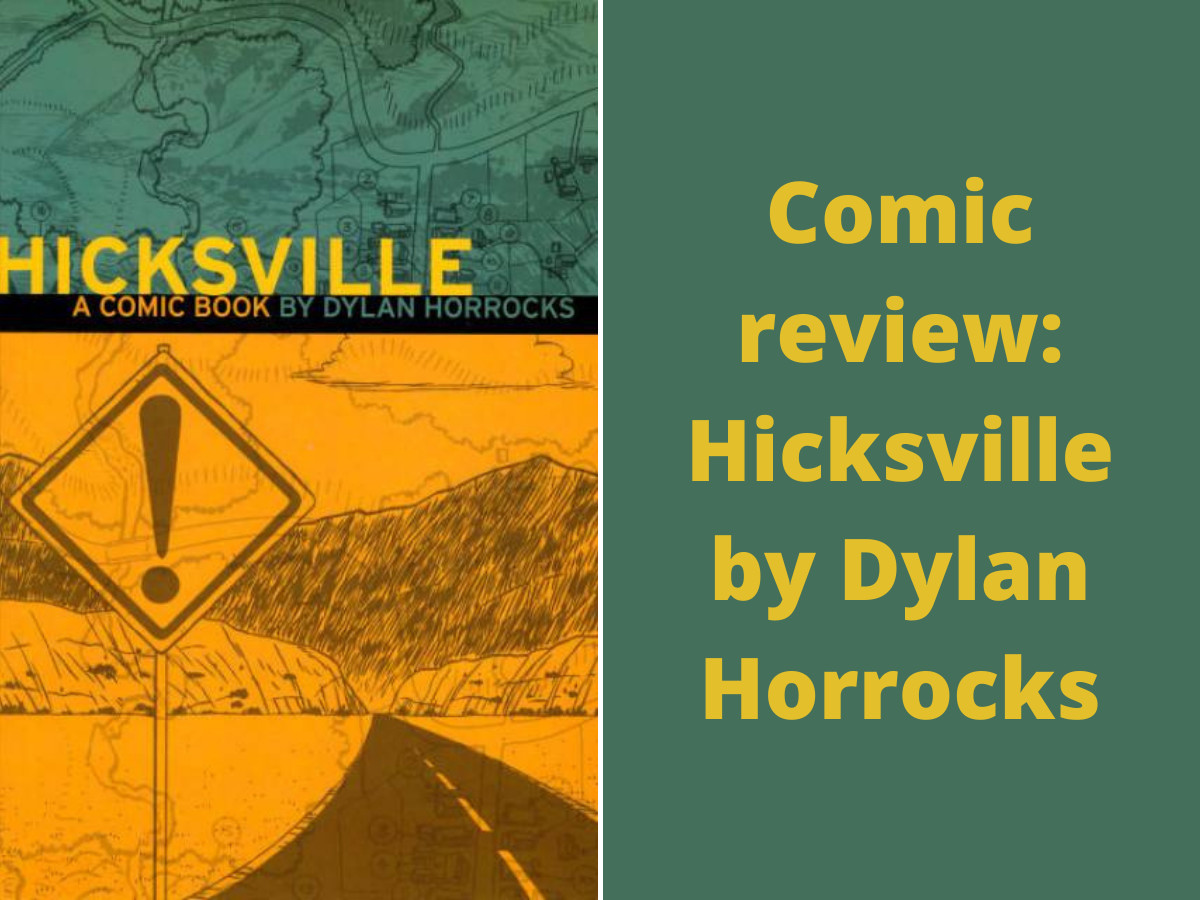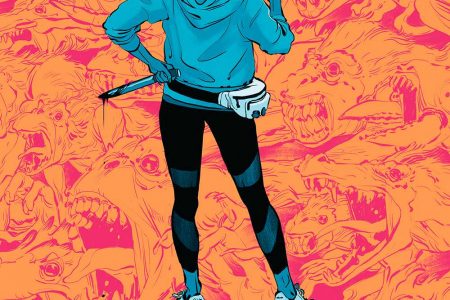I have heard good things about Hicksville ever since it came out but never tried it because it seemed to be getting TOO much praise from critical circles, which can put me off. I was given the chance to try it out when Gosh! had it on sale for £5 (well, it would be a crime not to).
One of the reasons for not trying this before was the ‘indie b&w art’ vibe hanging over it. I don’t mind black and white art – my love for Usagi Yojimbo shows that – but I do mind art when I don’t like looking at. Dylan Horrocks style is very much in the camp of the scratchy autobiographical cartoonist, the art for which make my eyes water. However, it isn’t bad; rather, I had to adjust to the style as it tells the story.
Hicksville is a small town in New Zealand where Leonard Batts, a journalist for a comic magazine, is heading to find out more about Dick Burger (great name), a world-famous cartoonist and the richest, most powerful man in the comics industry. There, he finds that Hicksville is a little different – the library has a complete run of Action Comics, people all know about mini-comics and comics history – and everyone hates Dick Burger.
The fact that this book is about the comics industry is what made me want to read this, and yet it made me feel as if I don’t know anything about the history of the medium. (I thought Rarebit Fiend, the name of the local coffee shop, was referring to Rick Veitch’s comic, not realising it was an old newspaper strip by Windsor McCay). It is also about the nature of art, its interaction with the business world, and the reasons for being in an entertainment industry. It is thoughtful, poignant, intelligent, warm, funny, emotional and an absorbing comic book that leaves an impact on you after reading it.
Even though I am not a great fan of the art style, Horrocks imbues a lot of feeling into his artwork, letting it tell the story and evoke feeling, rather than trying to impress. The characters are all individuals and the place feels real. New Zealand feels like an extra character in the story, which is something I would never think possible. But, then, I didn’t think it was possible to create a story about art and the comic book industry set in an almost mythical small town. There are some allusions to art and history in general that I felt I missed out on, but I didn’t feel stupid by it; rather, I felt the sense of something bigger than just a comic book about people and the way that life gets in the way of things that matter.




